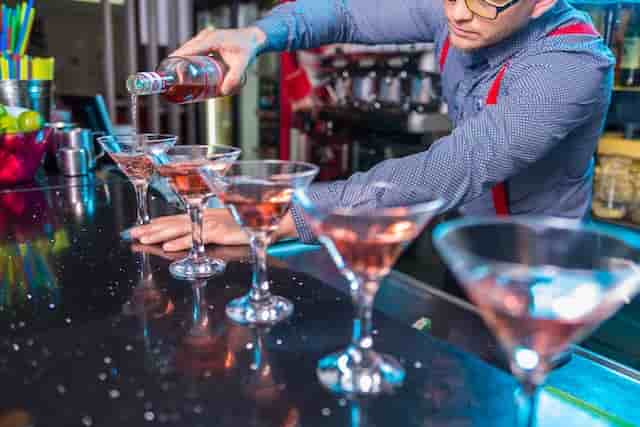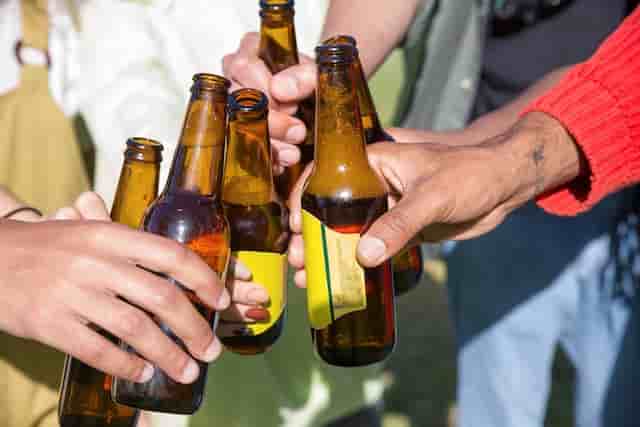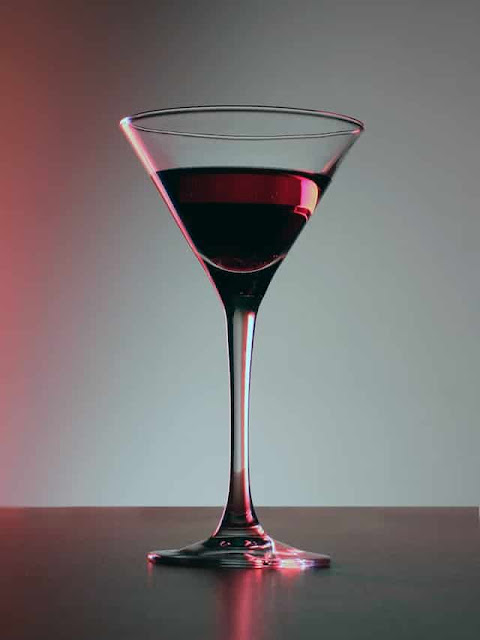Say No More To Alcohol
Preface
Do you like to drink wine from time to time? Many of us do this, often while socializing with acquaintances and loved ones. Depending on your age and health status and how much you drink naturally, drinking alcohol can be beneficial or harmful.
Say No More To Alcohol
Alcohol addiction is something that cannot be made into simple words. Alcohol addiction generally refers to the condition characterized by an obsession with continuing to drink despite harm to health. Binge drinking means having no control over your intake despite being well aware of the harmful consequences.
An alcoholic person drinks alcohol even if he becomes involved in alcohol-related problems such as drunk driving, job loss, etc.
Not everyone who drinks alcohol is an alcoholic. A person who consumes alcohol in moderation and when he does not want to drink is not said to be alcohol dependent. He or she is simply a social drinker.
This book provides valuable, research-based information for anyone who drinks alcohol. How about taking a look at your drinking habits and how they may be affecting your health? This might help get you started.
Alcohol-No-More
Finally, free yourself from alcoholic waste and live a healthy life
READ MORE ARTICLE
The Aromatherapy Incense
Relax Through Aromatherapy Baths
Dance and exercise tips for weight loss and fat loss.
1. Basics on Alcohol Use
Summary
Did you know that national surveys suggest that approximately 14 million Americans, one in thirteen adults, abuse alcohol or are alcoholics? For many adults, moderate alcohol consumption (1–2 drinks per day for men and 1 drink per day for women and the elderly) is not harmful.
In fact, moderate alcohol use has been shown to have a favorable effect on heart health, and this can be a pleasant plus for social affairs. But, unhealthy alcohol consumption can be fatal.
Heavy drinking has been shown to increase one's risk, especially for the liver, esophagus, throat, and larynx.
Additionally, heavy drinking can lead to liver cirrhosis, brain damage, and damage to the immune system. Step-up drinking increases the risk of death from a car accident or recreational/occupational injury and can result in severe economic hardship if one's drinking behavior affects one's ability to maintain a steady job.
Say No More To Alcohol
Facts You Need To See
Alcoholism is a serious, often under-recognized, national disease. UR students must learn to recognize the signs and symptoms of alcoholism and give appropriate support and assistance to affected individuals before it is too late.
alcohol abuse
According to the NIAAA, alcohol abuse is defined as a pattern of drinking that results in one or more accompanying conditions within12 months:
- Failure to meet major work, school, or household responsibilities.
- Drinking alcohol in physically unsafe places, such as while driving a car or operating machinery
- Repeated alcohol-related legal troubles, such as being arrested for drunk driving or bodily injury while intoxicated
- Continuing to drink despite ongoing relationship problems that are caused or exacerbated by drinking.
When a person misuses alcohol, he uses it solely for the purpose of intoxication, uses it in such a way that it leads to a course of harmful consequences, and/or is directly related to his use The apostle experiences loss. Liquor. Some examples of alcohol-related harms commonly experienced by people who abuse alcohol are: blacking out, vomiting, going into scrapes, and/or memory lapses. Such people will have a BAC greater than 0.06.
Alcohol Dependence
When a person becomes physically dependent on a substance, they experience craving and an irresistible urge to use it. If he doesn't use the sense, he will go through withdrawal. People who are dependent on alcohol are addicted to this substance, and its use becomes a daily/weekly priority.
Students who are dependent on alcohol often schedule classes completely late, lose the power to predict how much they are going to drink in the evening (lack of self-command), experience lots of blackouts, drink secretly to hide how much they actually drink, consume from close acquaintances and loved ones, drink before going out, and achieve/build a high tolerance.
Also, any attempts made to reduce drinking are unsuccessful. While many dependent students think that their drinking problem will end after they graduate from college, they are often wrong. Dependence is a serious medical problem that takes time, effort, and support to overcome. But, help is available.
Say No More To Alcohol
Liquor
Alcoholism is a disease that occurs when a person becomes physically dependent/addicted to alcohol. Oftentimes non-drinkers do not understand why an alcoholic cannot overcome his or her desire to drink with self-control or dedication. Sorry, it's not that simple. Alcoholics hunger for alcohol just as humans crave food or water, and will literally feel the urge to drink to endure.
Alcoholics lose the power to limit their alcohol intake, as well as limit their drinking to special occasions and/or celebrations. Without alcohol, alcoholics experience a period of withdrawal, similar to a person addicted to a "hard drug" such as cocaine or heroin, with symptoms such as nausea, sweating, tremors, tension, and insomnia.
Over time one's tolerance will expand, causing an alcoholic to consume greater and greater amounts of alcohol to satisfy their physical craving and get "high".
Research shows that the risk of acquiring alcoholism runs in families. While genes certainly play a role, lifestyle is really the determinant. Alcoholism is usually preventable with safe, consistent monitoring of alcohol use.
110 Tips For Health and Fitness Self-Improvement
Understanding An Issue
Understanding an issue is unique to each individual drinker. Different individuals may feel the adverse effects of alcohol misuse/abuse after consuming different amounts of alcohol at different times, and no two drinkers are exactly alike.
First of all, the concerned persons should ask themselves the relevant questions.
- Do you drink since you have trouble? to open?
- Do you drink alcohol if you are angry with others, your friends, or your family?
- Do you prefer to drink alone rather than with other people?
- Are your grades starting to drop? Are You Goldbricking At Your Job?
- Have you ever tried to quit drinking or drink less – and failed?
- Have you started drinking in the morning before school or work?
- Do you rotate your drinks?
- Do you ever lose memories that are related to your drinking?
- Are you fake in your drinking?
- Do you get into trouble when you've been drinking?
- Do you get drunk when you drink, even when you don't mean to?
If you find that you answered yes to one or more of the questions above, you either have or may have an alcohol-related problem.
2. Are You Ready To Quit
Summary
Are you ready to change your drinking?
How many times have you told yourself "I can't take it anymore, I need to stop drinking"? If you are an alcoholic, you have said this to yourself and probably to other people more times than you can count. The question is - are you really ready to stop?
Say No More To Alcohol
Know what stage you are at and what to do
The reality of the problem and your initial obstacle to quitting is that the addicted part of you is not going to side with the part that wants to stop. The dependent part of you will never want to give up alcohol.
The healthy part of you feels the harm caused by alcohol and recognizes that this situation has crossed the line, but once again, the dependent part of you will never want to stop permanently.
Life without alcohol is a terrible idea if you can even imagine it. And walking away from something that has become such an inherent part of your life that it's predictable (and therefore comforting on some level) results in a terrifying step into the strange.
First of all, you have to take stock of your situation. You really have to be honest with yourself and take a close look at the damage alcohol has done to your life. And understand that if you keep drinking, your life will keep going down.
For some active drinkers, your life may look great on the outside. But the people who are clearly "pulling it" are the ones who are most likely to end up with serious health problems or death from common drinking diseases like cirrhosis, simply because they don't feel the urge to quit drinking sooner. The drinker who "knocks" off the first drink.
This brand of drinker is having a much greater effect than the functional drinker and tends to be more desperate and motivated, more likely to seek help sooner as a result.
If drinking is having a serious effect on you and after you've made the decision that your alcohol addiction has largely dealt with the ongoing problems motivating it, you'll need to not only have the courage to start your drinking habit, Rather it will also require choosing a good strategy as a way to help free yourself from the steady, unrelenting drinking that will essentially take away everything that matters to you from your lifetime.
If you're considering changing your drinking, you'll need to decide whether to cut down or stop.
It's a good idea to talk through the different options with a therapist, an acquaintance, or someone else you trust.
Stopping is strongly recommended if you:
- Try to cut down but can't stay within the limits you set
- Have experienced or now have symptoms of an alcohol use disorder.
- Have a physical or mental condition that is caused or worsened by drinking
- Are taking medication that interacts with alcohol
- Are or may be pregnant
If none of the above circumstances apply to you, talk with your doctor about whether you should reduce or quit based on factors such as:
- Family history of alcohol issues
- Your Age
- Have you had a drinking-related injury?
- Symptoms like sleep disorders and sexual dysfunction
Say No More To Alcohol
If you choose whether to cut back or close, create a transition plan. It's okay if you continue to have mixed feelings. You may have to revisit your decision several times before you are comfortable with it.
Even when you've dedicated yourself to making a change, you may still have mixed feelings at times. Creating a written "change plan" will help you define your goals, why you want to reach them, and how you plan to do it.
Here is a sample form.
Goal: (select one)
___ I want to drink no more than ___ drink(s) on any day and no more than ___ drink(s) per week.
___ I want to stop drinking.
Timing:
I will start on this date: ___
Reasons:
My most important reasons to make these changes are - 14 -
_______________________________________________
_______________________________________________
_______________________________________________
Strategy
I will use these strategies:
_______________________________________________
_______________________________________________
_______________________________________________
People:
The people who can assist me are (names and how they can help):
_______________________________________________
_______________________________________________
_______________________________________________
_______________________________________________
Signs of success:
I will know my plan is working if:
_______________________________________________
_______________________________________________
Possible roadblocks:
Some things that might interfere—and how I'll handle them:
Roadblocks
_______________________________________________
_______________________________________________
How I'll handle them
_______________________________________________
_______________________________________________
If you feel like you're not ready to take action yet, consider these suggestions in the meantime:
- Keep track of how often and how much you are drinking
- Observe how drinking alcohol affects you
- List or restate the pros and cons of modifying the behavior
- Deal with additional priorities that may get in the way
- Ask for support from your doctor, an acquaintance, or someone else you trust
- Consider steps to stay safe.
Keep Track
Date Situation Sort Amount Consequences
(what’s going on)
3. If You Start by Cutting Back
Summary
Small changes can make a big difference in reducing your chances of alcohol-related issues. Whatever techniques you choose, test them objectively. If one plan of attack doesn't work, try something else. But if you haven't made progress in cutting back after 2 to 3 calendar months, you may need to stop drinking altogether, seek professional help, or both.
Beginner tips
Here are some techniques to try, and eventually you'll be able to add your own techniques. Mark maybe 2 or 3 to try in the next week or two.
Keep A Record.
Keep a record of how much you are drinking. Find a method that works for you, carry a Drinking Tracker card in your wallet (as in the previous chapter), check it on a kitchen calendar, or record notations on a mobile phone notepad or PDA. Paying attention to each drink before you can help you slow down when necessary.
Match And Measure.
Understand standard drink sizes so you can match your drink exactly. Measure drinks at home. Away from home, keeping track can be difficult, especially with mixed drinks, and from time to time, you may have more alcohol than you believed. With wine, you may need to ask the host or server not to "top off" a partially filled glass.
Many people are surprised to know what counts as a drink. US In the U.S., a "standard" drink is any drink that contains approximately 0.6 fluid ounces, or 14 grams, of "pure" alcohol. Although the drinks here are of different sizes, each contains roughly the same amount of alcohol and counts as one standard drink.
12 fl oz regular beer =
= 8-9 fl oz of malt liqueur
= 5 fl oz of table wine
3-4 oz fortified wine =
= 2-3 oz cordial, liqueur, or aperitif
= 1.5 ounces brandy (a single jigger or shot)
1.5 fl oz shot of 80-proof spirits ("hard liquor")
Set goals.
Choose how many days a week you want to drink and how many drinks you'll consume on those days. This is a good idea when you haven't drunk for a few days. The drinkers with the lowest rates of alcohol use disorders live within the low-risk range.
“Low risk” is “no risk”. Even within these limits, drinkers may have problems if they drink too quickly, have poor health, or are older (both men and women over sixty-five typically have more than 3 drinks per day and more than 7 per week). not recommended). Depending on your health and how alcohol affects you, you may need to drink less or not drink at all.
Pace and distance.
If you drink, pace yourself. Sip little by little. Don't have more than one standard drink with alcohol per hour. Use "drink spacers" - make every other drink a non-alcoholic one, such as water, soda, or juice.
Put in food.
Do not drink empty stomach. Eat some food so that the alcohol will be absorbed into your system more slowly.
Find alternatives.
If drinking has taken up a lot of your time, fill the free time by developing fresh, healthy activities, hobbies, and relationships, or rekindling ones you've missed. If you've counted on alcohol to be more comfortable in social situations, handle moods, or deal with issues, look for other, wholesome ways to deal with those areas of your life.
Stop "Trigger".
What triggers your impulse to drink? If certain people or places get you drunk even when you don't want to, try to avoid them. If certain activities, times of day, or emotions trigger the urge, make a plan to do something else instead of drinking. If drinking is a problem in the home, keep little or no alcohol there.
Create a plan to manage the urge.
When you can't avoid a trigger and an impulse hits, think about these alternatives: Remind yourself of the reasons for changing (it may help to get them in writing or store them in an electronic message) which you can easily access).
Or talk to someone you trust. Or engage in a fit, distracting activity, such as physical exercise or a hobby that doesn't call for drinking. Or, instead of fighting the feeling, accept it and ride it without buckling down, knowing that it will soon crest like a wave and pass.
Also, see the following chapters to help you control your urge to drink.
Understand your "no".
You may sometimes be offered a drink when you don't need it. Prepare a polite, reassuring "no, thank you". The sooner you can say no to these offers, the less likely you are to be turned down. If you falter, it gives you time to think of an excuse to go along. Also, check out the following chapters to help you develop the skills to say no to drinking.
List your own strategies:
______________________________________________________________________________________________
4. Handling Urges
Summary
The accompanying tips provide suggestions to aid you in your determination to cut down on or stop drinking. They can be used alongside counseling or therapy and are not meant as a replacement for professional help. If you decide to try them on your own and at any point, you feel you need more help, get help.
Give Yourself Some Help
Drinking Urge Management
As you transition your drinking, having an urge or appetite for alcohol is commonplace and normal. The words "urge" and "craving" refer to a broad range of thoughts, physical sensations, or feelings that tempt you to drink, even when you don't have the least desire. You may feel uncomfortable being pulled in 2 directions or feel the loss of command.
As luck would have it, the urge to drink is fleeting, predictable, and controllable. Here we provide an attack detection-avoidance-coping plan commonly used in cognitive behavioral therapy, which helps individuals change unhelpful thinking patterns and reactions.
Over time, and using new responses, you will find that your urges to drink will lose power, and you will gain confidence in your power to deal with the urges that arise from time to time.
If you're having a really hard time with the urges, or don't make progress with the techniques here after a couple of weeks, consult a therapist or doctor for help. Additionally, some newer, non-habit-forming drugs may reduce the urge to drink or reduce the reinforcing effects of drinking so it is easier to stop.
Accept 2 types of "triggers"
An impulse to drink can be set off by external triggers in the environment and by internal ones inside you.
External triggers are people, places, things, or times of day that provide opportunities to drink or prompt you to drink. These "risky situations" are more specific, predictable, and avoidable than internal triggers.
Internal triggers can be tricky because the urge to drink just seems to "pop up". But if you hesitate to consider it when it happens, you may find that the urge may be triggered by a positive emotion like excitement, a negative emotion like frustration, or a physical sensation like headache, or tension. or anxiety.
Consider tracking and checking your urge to drink for a few weeks. This will help you become more aware of when and how you are prone to urges, what sparks them, and ways to stop or control them.
Prevent Risky Situations
In a lot of cases, your best technique will be to not take the opportunity to act on impulse, then slip away and drink. Keep little or no alcohol in the home. Socially, stop activities that require drinking. If you're embarrassed to turn down an invitation, let yourself know that you're saying no "forever."
If the urges subside or become more manageable, you may decide to gradually ease back into some of the situations you now choose to avoid. In the meantime, you're able to stay connected with friends by offering alternative activities that don't necessarily involve drinking.
Struggle With Triggers You Can't Stop
It's not possible to avoid all risky situations or block out internal triggers, so you'll need several techniques to address impulses to drink.
Here are some options:
- Tell yourself about your bases for making changes. Put your top reasons on a wallet card or in an electronic message that you can easily access, such as a cell phone notepad entry or saved e-mail.
- Talk to someone you trust. Have a trusted acquaintance on standby for a telephone call, or bring someone along in risky situations.
- Distract yourself with a fit, alternative activity. Come up with short, mid-range, and long options for different situations, such as texting or calling someone, watching short net videos, lifting weights for audio, taking a shower, meditating, taking a walk, or doing a free time activity.
- Let go of the thought that inspired the impulse. Stop it, fault-study it, and replace it. Illustration: "It can't hurt to have a little drink. Wait a minute - what am I thinking? Somebody might get hurt because I've seen that 'just one' goes a long way. I am determined not to drink."
- Ride it out without bending down. Instead of fighting an impulse, accept it as commonplace and temporary. As you take it out, be aware that it will soon peak and blow away like an ocean wave.
- Exit risky situations swiftly and gracefully. It helps to plan your escape in advance.
5. Say no skills
Summary
Even if you are dedicated to changing your drinking, reducing or stopping "social pressure" to drink from acquaintances or other people can be difficult. This chapter provides an attack detection-avoidance-coping plan commonly used in cognitive-behavioral therapy, which helps individuals change unhelpful thinking patterns and reactions.
Turn It Down
Accept 2 Kinds Of Pressure
The first step is to become well aware of the 2 different types of social pressures to drink – direct and indirect.
- Direct social pressure is when someone offers you a drink or a chance to drink.
- Indirect social pressure is when you are tempted to drink just by being around other people who are drinking – even if no one offers you a drink.
Take a second to consider situations where you feel direct or indirect pressure to drink, or to drink a little too much. You can write them. Then, for each situation, choose some of the coping techniques below, or come up with your own.
Avoid Pressure If Possible
It's worth repeating... for some situations, your most beneficial technique may be to avoid them all. If you feel guilty postponing an event or turning down an invitation, remind yourself that you're not saying "forever."
When you're confident in your coping skills, you can decide to gradually ease into situations you decide to stay away from. Meanwhile, you're able to stay connected to acquaintances by suggesting alternative activities that don't necessarily involve drinking.
Struggle with situations you can't avoid (also worth repeating)
Know Your "No"
If you know alcohol will be served, it's important to prepare some coping techniques in advance. If you expect to be offered a drink, you need to be prepared to say "no thank you". Your goal is to be clear and firm, yet friendly and respectful. Avoid lengthy explanations and lighthearted excuses, as they prolong the discussion and provide more opportunities for dumbing down.
Here are some other points to keep in mind:
- Don't waver, because it will give you an opportunity to dream and a reason to keep going
- Look at the person directly and make eye contact.
- Keep your response short, clear, and simple.
The person giving you a drink may not know whether you are trying to cut down or quit, and their level of solicitation may vary. It's a good idea to plan a range of responses should the person remain, ranging from a simple denial to a more self-assertive answer.
Think about this sequence:
- no, thanks.
- No thanks, I don't want to.
- You know, I (cut down/not drink) now (to get fitter/to take care of myself/as my doctor said). I would really appreciate it if you would help me.
You can also try the "broken record" technique. Every time the person makes a statement, you can simply repeat the same short, neat response. You may want to acknowledge some of the individual points ("I hear you...") and then return to your broken-record answer ("...but no thank you"). And if the words flutter, you can walk away.
Rehearse the Script and Your "No"
Many people are surprised by how hard it can be to say no the first two times. You can build confidence by scripting and practicing your lines. First, imagine the situation and the person who is drinking. Then write down both what the person will say and how you will respond, whether it's a broken record technique (mentioned above) or your own unique plan of attack.
Repeat this out loud to get comfortable with your choice of words and delivery. Similarly, think about asking a support person to role-play with you, someone who provides truthful pressure to drink and truthful feedback about your answers. Whether you rehearse through fabricated or real-life experiences, you will learn as you go. Keep it up, and your tools will grow over time.
Try Additional Techniques
In addition to getting your "no thank you" fix, think about these techniques:
- Keep non-alcoholic beverages constantly on hand if you're stopping, or as "drink spacers" between drinks if you're cutting down
- If you're underage, keep a record of each drink so you stay within your limit
- Invite support from others to fight temptation.
- Have an escape plan in case temptation becomes too great.
- Ask other people to avoid pressuring you or drinking in your presence (this can be difficult)
If you've successfully declined drink offers before, remember what worked and build on that.

Remember, it's your choice
How you approach any decision to change your habits can affect your success. Many individuals who choose to cut down or stop drinking think, "I'm not allowed to drink," as if some outside authority is enforcing the rules. Such thoughts can breed bitterness and make it easier to buckle down. To challenge this type of thinking it is important to tell yourself that you are in charge, that you know how you want your life to be, and that you have chosen to make changes.
Similarly, you may worry about how other people will react or see you if you make changes. Once again, challenge these thoughts by remembering that this is your life and your choice and that your determination should be respected.
6. Treatment to deal with alcohol abuse
Summary
Whether you decide to go to rehab, rely on self-help programs, seek therapy, or pursue a self-sustaining treatment plan, support is important. Don't attempt to go it alone. Recovering from alcoholism is much easier when you have people you can count on for encouragement, comfort, and advice.
Some Options
Support can come from loved ones, acquaintances, counselors, other recovering alcoholics, your health professional, and people in your faith community.
Seek support from close acquaintances and loved ones –
Having the support of acquaintances and loved ones is an invaluable asset in recovery. If you've been reluctant to turn to your family because you've let them down in the past, consider going to counseling or therapy.
Build a sober social network -
If your former social life centered around alcohol, you may need to make some new connections. It is important to have sober acquaintances who will support your recovery. Try taking a class, joining a church or civic group, volunteering, or participating in events in your community.
Consider moving to a quieter home. Sober homes provide a safe, supportive place to stay while you are in recovery from alcoholism. They're a great option if you don't have a stable home or alcohol-free living environment to go to.
Make Meetings a Priority -
Link up with a recovery support group and attend meetings regularly.
Spending time with people who understand exactly what you're going through can be very healing. You can likewise benefit from the shared experiences of group members and learn from what others have done to stay sober.
Alcoholics Anonymous (AA) is the longest-known and most widely available self-help group for alcoholics in treatment and recovery.
A key component of a 12-step program is choosing a sponsor. A sponsor is a former user who has had the time and experience to stay sober and can provide support when you are dealing with the impulse to use.
Research Treatment Options
If you choose that you want to see a mental health care provider and capitalize on the latest dependency treatments, now is the time to research your treatment options. As you think about options, keep the following in mind:
- There is no magic bullet or individual treatment that works for everyone. When thinking about a program, remember that everyone's needs are different. Alcohol addiction treatment should be customized according to your specific problems and situation. You must find a program that feels right.
- Treatment must address more than just your alcohol abuse. Addiction affects your whole life, including your relationships, job, health, and psychological well-being.
- The success of treatment depends on how alcohol abuse has affected you and how you develop a new way of living.
Dedication and follow-through are key. Recovery from alcohol addiction is not a quick and easy process. Overall, the longer and more intense the alcohol use, the longer and more intense the treatment you will need. However, regardless of the length of the treatment program in weeks or months, long-term follow-through care is imperative to recovery.
There are many places to turn to for help. Not everyone needs medically managed detox or an extended stretch in rehab. The level of care you need depends on your age, history of alcohol use, and additional medical or psychiatric conditions. In addition to physicians and psychologists, many clergy members, caseworkers, and counselors provide addiction treatment services.
When evaluating the many different types of alcohol treatment programs, remember that everyone's needs are different. A quality treatment plan not only addresses alcohol abuse but also addresses the emotional pain and additional life issues that contribute to your addiction.
As you seek help for alcohol addiction, it is also important to seek treatment for any additional medical or psychological problems you may be having.
Alcohol abuse often goes hand in hand with other mental health issues including anxiety, depression, ADD, and manic depression. In many cases, drinking is an attempt to self-medicate. When these issues occur together, recovery depends on treating both of them.
7. Alternative ways to deal with alcohol abuse
Summary
Alternative treatments for alcoholism have advanced in popularity in recent times. This treatment strategy involves blending both traditional and modern scientific strategies of treatment for certain symptoms. The treatment of alcoholism should be done with extra care, different from the treatment of other diseases. Efforts should be made to create a stress-free environment.
Various options
Various rehab centers around the world provide targeted treatment for the whole life of a person with a problem, rather than just the symptoms. It calls for identifying and eradicating the bedrock of dependency.
Detox centers have treatment sessions where the patient is gently guided to open up to their anxieties and fears at the most bass level. It helps in discovering the root cause of the habit.
A positive treatment plan is then worked out so that the patient can break free from the habit and lead a happy and healthy life.
Drinking can be the result of clinical depression. Treatment in these cases requires more intensive work on the individual's mind. Psychotherapeutic treatment programs are conducted for these people which are an effective alternative treatment for this condition. This treatment works on both the addiction and the emotional layer of the patient.
Religious counseling is also gaining popularity as a treatment option for the condition of alcoholism. Spiritual belief can act as a major motivation for a person to give up his drinking habit.
Various meditation techniques taught by spiritual masters from many organizations help addicts to relieve stress and find peace, making it easier for them to quit their habit and lead a peaceful and serene life.
Techniques include yoga, various types of meditation, and trance. Meditation helps a person to focus inward thereby helping a person to calm his mind and release tension and stress.
When a person is happy and content with himself, he is not affected by anything happening around him and does not need any habit to feel happy, comfortable, and peaceful.
Many people are going to such programs because they think that meditation is better than medicine. While medicine is temporary, meditation provides a permanent answer.
Trance work is also something like meditation. It helps the individual to focus his mind on the study of deeper truths and gives the addict formidable inner strength so that he may master his temptations with relative simplicity.
Yoga which is really popular now is a different effective treatment strategy for the condition of alcoholism. Yoga effectively helps in reducing stress and tension in a person and makes him free from anxiety. Yoga focuses on gentle stretching and creates an effective harmony between body and mind.
A different alternative treatment that has appeared to be effective is called nutritional counseling.
Many nutritional deficiencies develop from excessive consumption of alcohol. An alcoholic's body stops taking in vital nutrients that help a person stay healthy because his small intestine is not able to absorb essential nutrients.
Nutritional counseling can help after a person quits drinking.
Generally, she is assessed for counseling and made aware of the diet to follow to return to a fit and strong life. It involves balancing the sugar level in the blood of a person who is on the road to recovery.
Another effective alternative treatment involves acupuncture. This has proved successful in many cases. Acupuncturists inform patients to take it as an adjunct treatment along with other treatments.
Wrapping Up
- It can be a rough journey and there may be times when you slip... If you remember this:
- Get back on track. Quit drinking - the sooner the better.
- Remember, every day is a new day to start. Although it can be nerve-wracking to slip away, you don't need to keep drinking. You are responsible for your selection.
- Realize that setbacks are the norm when individuals make a big change. It's your progress over the long haul that counts.
- Don't get yourself down. It doesn't help. Don't let feelings of frustration, anger, or guilt stop you from seeking help and getting back on track.
- Get some help. Contact your counselor or a calm and supportive acquaintance right away, or go to an AA or other mutual-help meeting to talk about what happened.
- Think it over. With a little space, work on your own or with support to better understand why the episode happened at that particular time and place.
- Learn from what came. Decide what you need to do so that it doesn't happen again, and write it down. Use the experience to amplify your commitment.
- Avoid drinking triggers. Stop consuming any kind of alcohol in the house. If possible, avoid revisiting the situation in which you drank.
- Find options. Engage in things that are not related to drinking.
Best of luck in your endeavor.




















0 Comments